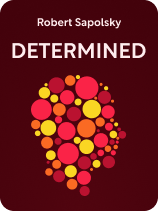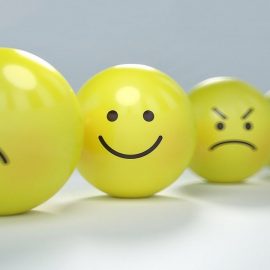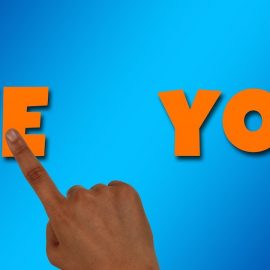

This article is an excerpt from the Shortform book guide to "Determined" by Robert Sapolsky. Shortform has the world's best summaries and analyses of books you should be reading.
Like this article? Sign up for a free trial here.
Is free will really a thing? How might chaos theory relate to our ability to make choices?
In his book Determined, Robert Sapolsky explores the fascinating intersection of chaos theory and free will. He explains the theory and how it might be applied to decision-making in complex systems. He also points to what he believes are flaws in the application.
Keep reading to discover why unpredictability doesn’t necessarily mean indeterminism and how you can use options to navigate an unpredictable world.
Chaos Theory and Free Will
Chaoticism—also called chaos theory—is a cross-disciplinary field of science and math that studies complex systems and how small changes can have enormous, unpredictable effects on those systems over time. People who favor the chaotic theory of free will say that humans are very complex and therefore unpredictable. They argue that there’s no scientific or mathematical way to link causes (what someone is experiencing) with effects (what they decide to do because of it), which leaves free will as the only possible explanation.
(Shortform note: Although Sapolsky devotes a chapter of his book to discussing chaos theory and free will, this is not a widely accepted theory. Proponents cite the supposed randomness of people’s behavior as grounds to argue that free will exists, but chaos theory doesn’t say that complex systems are random, only that they’re unpredictable. In fact, research papers dating back to at least the 1990s point out that “chaos theory” is a confusing misnomer—it’s only called that to highlight the fact that complex systems seem chaotic.)
Arguments Against Chaotic Free Will
Sapolsky says that the chaotic theory of free will has several glaring flaws.
First of all, proponents of this theory are confusing unpredictability with indeterminism. In other words, they think that since they don’t know what will happen, future events haven’t been determined yet. However, this isn’t necessarily true.
For example, imagine shuffling a deck of cards and drawing the top card. That event is unpredictable because you don’t know which card you’re going to draw, but it’s still predetermined because the order of cards was fixed as soon as you stopped shuffling. To look at it another way, only one card could possibly be on top of the deck (as determined by how you shuffled it)—you just don’t know which card that is. Tying this example back to human behavior, Sapolsky would say that a human can’t decide to do something other than what is predetermined, the same way that a deck of cards can’t decide to change which card is on top.
Secondly, this argument implies that being unable to link cause with effect means there is no cause. So, if you don’t know why someone did something, then there must not have been a definitive reason for their action—they simply chose to do it. Sapolsky retorts that this misinterprets a fundamental point of chaoticism, which is that all events have definitive causes, but in many cases we’ll never be able to figure out what those causes were.
| Use Options to Take Advantage of Chaos Chaos theory says the world is so complex that it’s largely impossible to predict future events, or even to trace current events back to the things that caused them. However, many people try to make plans by doing just that: trying to determine why things happened the way they did, and using past events to predict what might happen in the future. Relying too heavily on these predictions inevitably backfires sooner or later, leaving people scrambling to handle situations that play out differently from how they expected. In Antifragile, risk analyst Nassim Nicholas Taleb says that most predictions—especially those involving complex systems like financial markets or socio-political events—are inherently unreliable. This is because people tend to underestimate the effects of randomness and, therefore, overestimate their ability to predict future events based on past data. (Although Taleb uses the term “randomness,” his suggestions are equally valid whether events are truly undetermined or merely unpredictable.) Therefore, instead of relying on dubious predictions, Taleb urges you to maximize your optionality: In other words, make sure you always have as many options open as possible. This way, instead of getting tripped up when events don’t play out the way you predicted, you can pick the best possible course of action based on whatever does happen—you’ll be able to minimize the harm from negative events and maximize the benefits from positive ones. For example, one way to keep your options open is to avoid spending money until absolutely necessary. Once you’ve chosen something to spend money on, you’re no longer able to spend that money on anything else, meaning that you’ve reduced your options. So, if you just finished getting your car inspected, you might predict that nothing will go wrong with it in the near future, and spend money that you were saving in case it needed repairs. However, if something does then go wrong with the car (however unlikely that is), you’ll no longer have the money you need to fix it. |

———End of Preview———
Like what you just read? Read the rest of the world's best book summary and analysis of Robert Sapolsky's "Determined" at Shortform.
Here's what you'll find in our full Determined summary:
- Why some people believe we have free will—and others don’t
- Three implications of a world without free will
- Why we should live as though free will doesn’t exist (even if it does)






